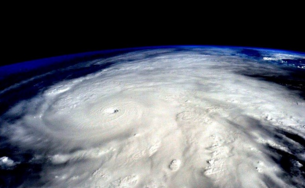Donald Trump, Ben Carson and Marco Rubio have all adamantly rejected climate change as a result of human impact. Whether their opinions were drawn because of a lack of scientific evidence or, in the case of Donald Trump, for no legitimate reason, they all made it clear sustainability would not be a priority if they were elected president. Marco Rubio claimed efforts to reverse climate change “will destroy our economy,” as published in The Washington Post.
Unfortunately, their naïveté is shared by many. According to the Public Religion Research Institute, “Less than one-quarter of Americans said they will personally be harmed by climate change.” This belief completely contradicts recent reports published by the Bulletin of the American Meteorological Society, which stated that half of the natural disasters that occurred in 2014 were influenced by human activity, like greenhouse gas emissions. These natural disasters have personally harmed many Americans and destroyed land and natural resources. The report also discussed the hurricanes that narrowly missed Hawaii, saying they were likely due to abnormalities in oceanic water temperature.
If Americans believe they are somehow exempt from the detrimental effects of climate change, they are wrong. The wildfires in Northern California led to death, displacement and billions of dollars in damage. The United States Forest Service cites climate change for the flux of wildfires and the need for increased spending to suppress them. A recent report by the USFS states that climate change “is causing variations and unpredictability in precipitation and is amplifying the effects and costs of wildfire.” This will not only threaten the safety of U.S. residents but cost millions of dollars in Congressional funds. The same report predicts that in the next 10 years, two out of every three dollars the USFS receives from Congress will be spent on fire programs.
Americans who feel they will not be impacted by climate change do not understand how it affects earth’s ecosystems. Plants we rely on for nutrition suffer. Agriculture is at risk because of climate change, which will have an undeniable effect on the entire U.S. population. The United States Department of Agriculture has acknowledged climate change as a very real endangerment to crops. Drought, flooding, carbon dioxide emissions and disease due to stress all impact growth. The USDA expects the current rate of climate change to “have overall detrimental effects on most crops and livestock,” and increases in temperature disrupt the metabolism of livestock and reduce production yield.
In addition to government-sponsored administrations there is also an overwhelming consensus in the scientific community regarding the reality of climate change. A recent study in environmental research showed 97 percent of global warming-related scientific papers supported the idea that it is caused by humans.
Yet there is still opposition. People still reject global warming as a pressing and legitimate issue. As winter approaches, skeptics will undoubtedly point to subzero temperatures in Michigan and snow in Utah as proof that climate change is a hoax. But climate change is not exclusively global warming — it also includes cooling periods of our planet’s temperature, known as global cooling. More importantly, climate change cannot be observed over the course of one season, or one year, or even one lifetime. So one good ski season does not disprove the extensive studies on climate change. There is overwhelming scientific evidence that proves there are ongoing fluctuations in the planet’s temperature which are being spurred by human behavior. The 75 percent of Americans who do not believe this need to wake up and smell the carbon dioxide-infused air, because the increasingly detrimental effects of global warming are creeping into our everyday lives.


